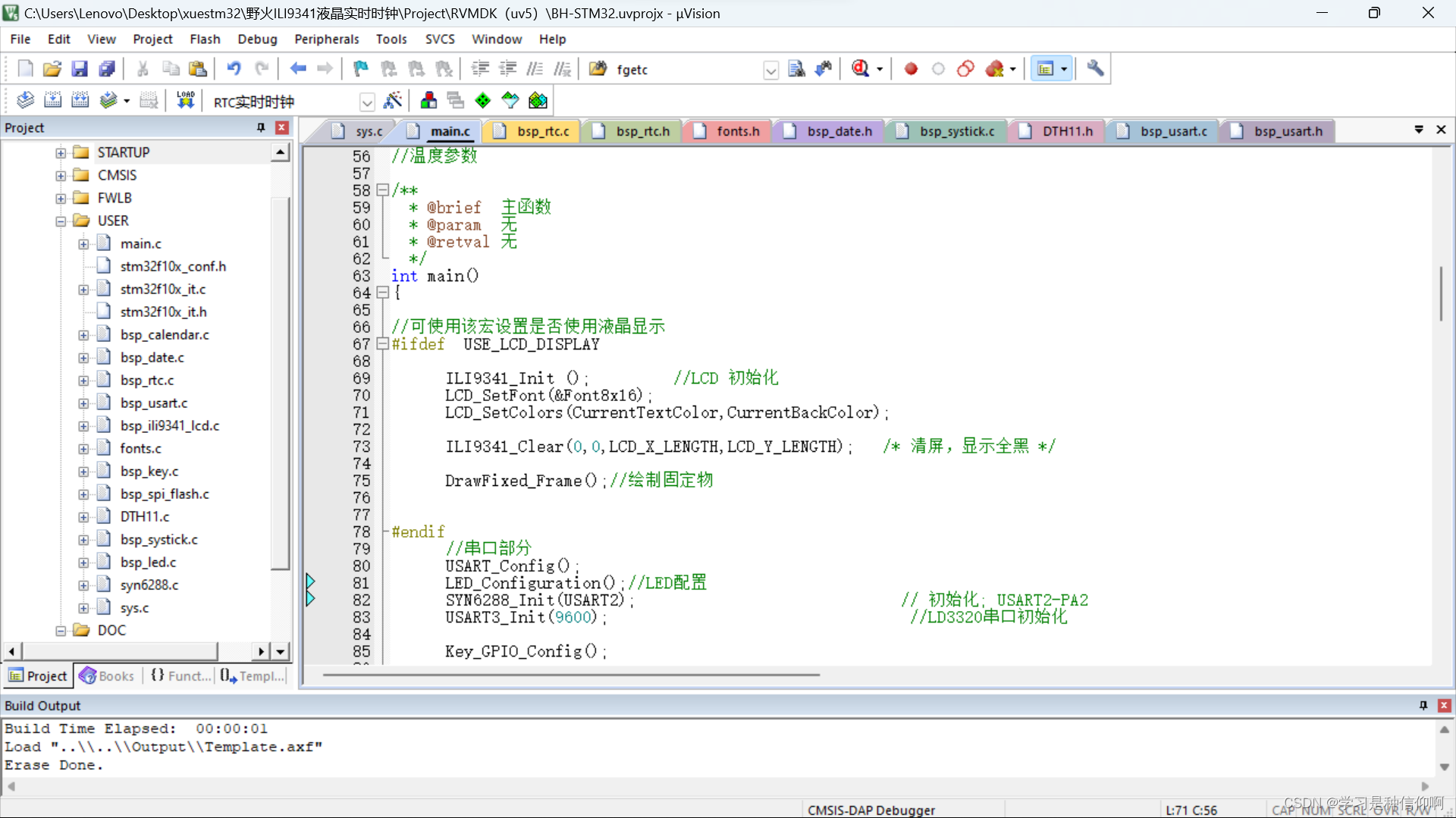Python 老男孩教学基础
#【py脚本文件、基本输出格式】#!/usr/bin/env pythonprint 'Hello word!'if Ture:print 'if test1'print 'if test2'aa=123bb='123'print type(aa)print type(bb)'''注释'''print '''aaabbbccc'''print "
·
#【py脚本文件、基本输出格式】
#!/usr/bin/env python
print 'Hello word!'
if Ture:
print 'if test1'
print 'if test2'
aa=123
bb='123'
print type(aa)
print type(bb)
'''注释'''
print '''aaa
bbb
ccc
'''
print "He said 'hi!' "
变量(直接写字符):字母、下划线、数字 ; 区分大小写 ;
------------------------------------------------------------------------------
#【模块导入】
>>> import module,sys
>>> import test.py
>>> from module import funname
>>> from os import system
>>> import module as newname
import sys
import readline
readline.parse and bind('tab: complete')
>>> OS.<tab>
>>> sys.path
>>> sys.system('df')
------------------------------------------------------------------------------
#【获取输入输出、流程控制】
for i info range(3):
name = raw_input('What is your name?').strip() #获取控制台输入
if len(name) == 0:
continue
else:
break
while ture:
name = raw_input('What is your name?').strip()
if len(name) == 0:
continue
else:
break
age = int(raw_input('What is your age?')) #类型转换
sex = raw_input('What is your sex?').strip()
job = raw_input('What is your job?')
print """Personal info:
name: %s
age : %d
sex : %s
job : %s
""" % (name,age,sex,job)
print "Your name is %s , it's a good name." % name #变量输出
if age < 28:
print "aaaaaaaaaa"
elif age ==28:
print "bbbbbbbbbb"
else:
print "cccccccccc"
------------------------------------------------------------------------------
#【文件读写】
f = file('user.txt','w') #新建文件
f.write('kk 123456')
f.close()
os.system('ls')
a = file('user.txt','a') #附加到文件
a.write('\n')
a.write('mm 123456')
a.read() #顺序逐行读
a.close()
#按字节读所有
for line in a.read():print line
#按行读所以
for line in a.readlines():print line
----------------------
#【列表】
names = ['aa','bb','cc]
names
names[0]
names[1]
names[2]
for line in a.readlines():print line[0] #行的字符位置
#字符串转列表
l = 'user pwd'
l.split()
l.split('e')
a = file('lock.txt')
for line in a.readlines():print line[0], #每行的字符位置
for line in a.readlines():print line.split(), #转为数组
for line in a.readlines():print line.split()[1], #转数组取第二列
------------------------------------------------------------------------------
#登录验证:
#!/usr/bin/env python
account_file = 'account.txt'
lock_file = 'lock.txt'
for i in range(3):
username = raw_input("username:").strip()
password = raw_input("password:").strip()
if len(username) !=0 and len(password) !=0:
f = file(account_file)
loginSuccess = False
for line in f.readlines():
line = line.split()
if username == line[0] and password == line[1]:
print "Welcome %s login my system" % username
loginSuccess = True
break
if loginSuccess is True:
break
else:
continue
else:
f = file(lock_file,'a')
f.write('%s\n' %username)
f.close()
------------------------------------------------------------------------------
#【文件处理】
#创建文件(w、r、a、w+、r+、wb、rb)
f = file('myfile.txt','w')
f.write("Helloword!")
f.close
#遍历文件内容
a = file('myfile')
for line in a.readlines():
print line,
a.close
#追加
f = file('myfile.txt','a')
f.write("append to end")
f.close
------------------------------
import time
f = file('test.txt','a')
for i in range(10,20):
time.sleep(1)
f.write('the %s loops\n' % i)
f.flush()
f.close()
------------------------------
import fileinput
for line in fileinput.input('test.txt',inplace=1):
line = line .replace("aaa","bbb")
print line,
for line in fileinput.input('test.txt',inplace=1,backup='.bak'):
line = line .replace("aaa","bbb")
print line,
------------------------------------------------------------------------------
#【列表】(有序)
name_list = ['aaa','bbb','ccc']
l = [x for x in range(100)]
for i in range(10): name_list.append(i)
name_list.index('ccc')
name_list.insert(4,'ddd')
name_list.count('ddd')
name_list.remove('ddd')
name_list.pop()
name_list.pop(2)
name_list.reverse()
name_list.sort()
name_list.extend([99,100,'kk'])
name_list.extend('ABC') $分解每个字符添加
name_list[2] = 'CCC'
name_list[2:6] #部分列表
name_list[10:]
name_list[:-5]
name_list[1::2]
a = [1,2,3,4]
b = [2,4,6,8]
a + b
zip(a,b)
for i,v in zip(a,b):
print i,v
c = []
for i in range(10):
c.append(i*i)
c = [ i*i for i in range(10)]
#【元祖】不可更改,操作类似数组
d = (1,2,3,4,5,6)
d.count()
d.index()
----------------------------
#【字典】无序
contacts = {
'kk' : 13900001111,
'mm' : [13500002222,'student',25],
'gg' : {'age': 28},
}
contacts['kk'] = 123456789 #修改
del contacts['kk'] #删除
contacts['kk hi'] = 123456789 #添加
contacts.get('mm')
#键打印
for i in contacts:
print i
#按元祖打印
for i in contacts.items():
print i
#键值打印
for k,v in contacts.items():
print k,v
contacts.keys() #查看键
contacts.values() #查看值
contacts.popitem() #删除第一个
if contacts.has_key('kk'): print contacts['kk']
for i in contacts: print i,i.count('K')
----------------------------
contact_dic = {}
with open('contacts_file.txt') as f:
for i in f.readlines():
line = i.strip().split()
contact_dic[line[0]] = line[1:]
print contact_dic.keys()
if contact_dic.has_key('kk'):
print ...
else:
for name,value in contact_dic.items():
if 'kk' in value:
print ...
else:
print 'no valid record.'
------------------------------------------------------------------------------
#【函数】
---------------------------
#!/usr/bin/enc python
df_name = 'kk'
def printmsg2(name=df_name):
global ads
ads = "pppppppp"
print "Hello,%s." % name
printmsg2()
printmsg2("mm")
print ads
---------------------------
#!/usr/bin/enc python
def func1(a,b=5,c=10):
print "a is ",a," and b is ",b , " and c is ",c
func1(3,7)
func1(25,c=24)
func1(c=50,a=100)
---------------------------
#!/usr/bin/enc python
def func1(x,y):
if x > y:
return x
else:
return 100
if func1(1,2)==100:
print "11111111"
else:
print "22222222"
------------------------------------------------------------------------------
#【集合】
a = [1,4,2,5,4,36,5,4]
a = set(a) #列表去重
b = set([5,4,6,3,5])
a & b #交集
a.intersection(b) #交集
a | b #并集
a.union(b)
a - b,b - a #差集
a ^ b #对称差集(左右差集总和)
------------------------------------------------------------------------------
#【迭代器】
a = [1,2,3,4,5]
b = iter(a)
for i in b: print(i)
#【lambda】(匿名/简单函数)
a = lambda x:x**2
a(3)
a = lambda i,j:i+j
a(3,10)
lambda x:x**2,5
d = map(lambda x:x**2, [i for i in range(10)])
------------------------------------------------------------------------------
#【pickle 序列化】
import pickle
account_info = {
'123456':['kk',15000,15000],
'123457':['mm',9000,9000],
}
f = file('account.pkl','wb')
pickle.dump(account_info,f)
f.close()
---------------------
#保持为文件
#!/usr/bin/env python
import pickle
name_list = {
'kk':[29,'IT'],
'rain':{
'age': 24,
'job': 'salse',
},
'jack': 999
}
f = file('name_list.pkl','wb')
pickle.dump(name_list,f)
f.close()
---------------------
#读取文件
import pickle
f = file('name_list.pkl')
#f.readlines()
name_list = pickle.load(f)
name_list['kk']
name_list['rain']['age']
------------------------------------------------------------------------------
#【Json】
import json
import pickle
f = file('name_list.pkl')
name_list = pickle.load(f)
json.dumps(name_list)
f = file('name_list.json')
json.load(f)
------------------------------------------------------------------------------
#【正则表达式】
import re
p = re.compile('hello')
m = p.match('hello world')
p.findall('hello worldhello worldhello world')
------------------------------------------------------------------------------
#【模块】
import sys
import os
r = os.popen('ls')
r.readlines()
for line in os.popen('df').readlines(): print line,
for line in os.popen('dir').readlines(): print (line)
import commands
commands.getoutpout('df')
status,results = commands.getoutpout('df')
------------------------------
#!/usr/bin/env python
aa = 'kk'
pi = 3.14
def tellName():
print "hello world"
if __name__ == '__main__':
tellName()
------------------------------------------------------------------------------
#【异常处理】
try:
int(raw_input("Please inout your age:"))
except ValueError:
print "You must input an interger."
------------------------------------------------------------------------------
更多推荐
 已为社区贡献2条内容
已为社区贡献2条内容








所有评论(0)